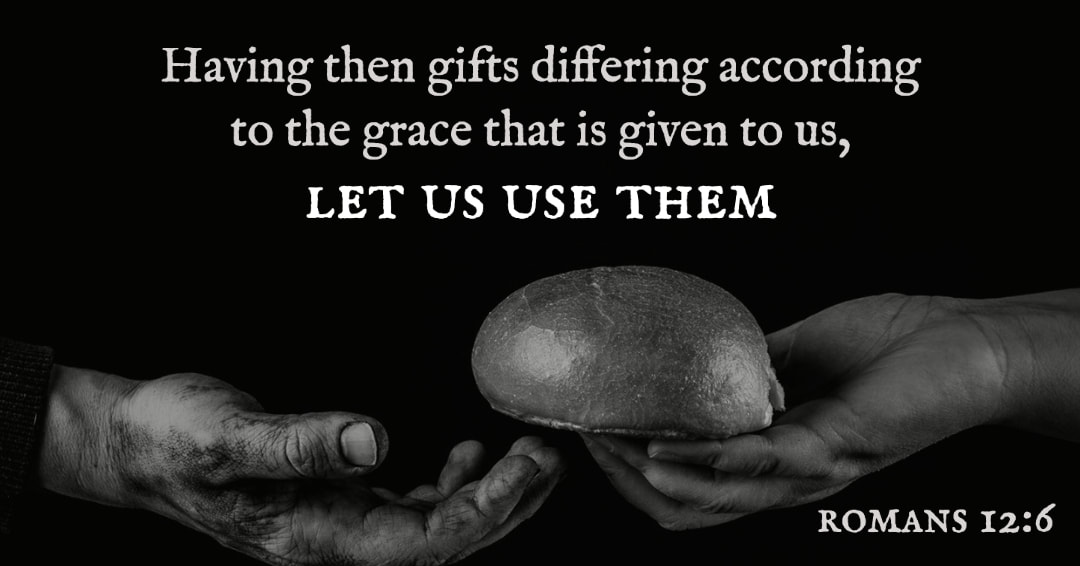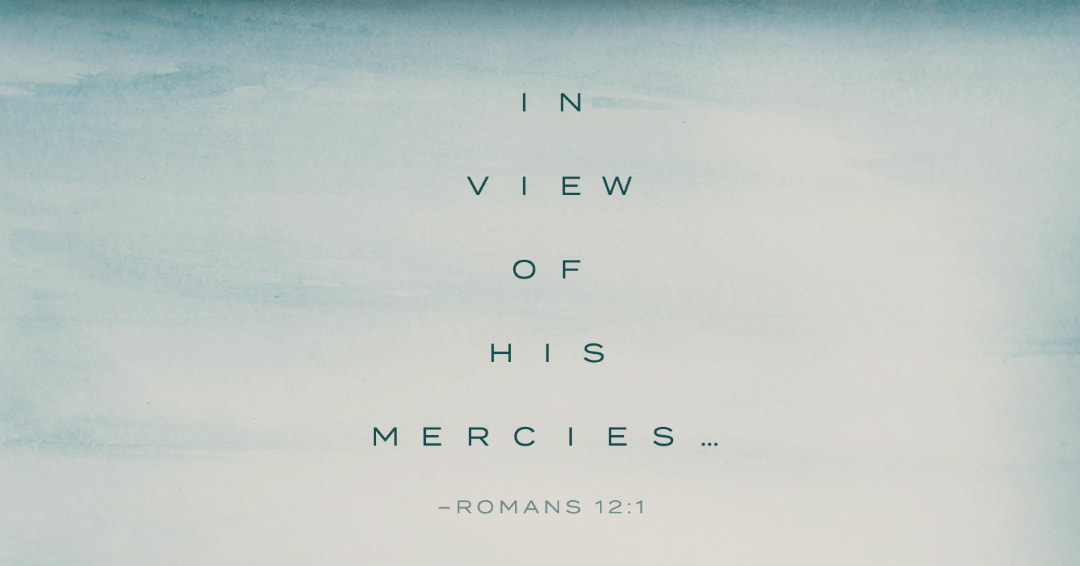Read the word.
Teach the word.
Preach the word.
- 1 Timothy 4:13
|
Romans 12:9-21 contains approximately 30 exhortations and applications—practical ways we can practice being the kind of friend to others that Jesus has been to us.
This past Sunday, we looked at just 5 verses of that portion of the text and contemplated the depth of love that Christ’s expresses in His friendship with us. He has demonstrated His love for us by laying down His life for us—and we are encouraged to do the same for our brothers and sisters. Watch our study of Romans 12:9-13 as we learned what a good friend we have in Jesus, then considered how we can be that kind of a friend to those around us. When we see and receive God’s mercy, we can’t help but respond. And as we read in Romans 12, our appropriate response in light of His mercy is to offer Him our everything by loving Him with our heart, soul, and mind.
When we do this, we start to mature. As we renew our minds by His word, we see ourselves soberly and honestly as His servants. And as His servants, He is sending us to serve and love our neighbors—to give the people we find around us the gifts that God has given us to give to them. When we realize that the gifts that God has given us are not really for us but have been given to us to bless and serve others, we begin to grow in our maturity in Christ. He didn’t give us these gifts so that we can draw attention to ourselves or to soothe some personal insecurity that we might have. He didn’t give us these gifts so that we could develop exaggerated ideas of our own importance. God gives us these gifts to give away. When we all give away the gifts that we have been given, it builds others up so that the body of Christ is healthy, growing, full of love, and maturing.
When we cooperate with God’s work that He began in us, He leads us toward true maturity. As this begins and continues, something happens within us—we begin to become a bit uncomfortable with always receiving the good things God gives us.
As we worship Him and are blessed by Him, our hearts continue to fill up until we find ourselves responding to God’s love by loving those around us with the very love that He has given us. This is all part of His plan to mature and strengthen us, and it’s what we considered as we continued our study in Romans 12:3-8. Watch our study from Sunday as we studied what it means to love those around us with the gifts that God has given us. “I beseech you therefore, brethren, by the mercies of God, that you present your bodies a living sacrifice, holy, acceptable to God, which is your reasonable service.”
– Romans 12:1 Continually offering our everything to God is our reasonable, rational, and logical response to His mercy. This is one of the reasons why simple Bible study is so important—so that we can see God’s mercies and respond accordingly. It’s the way that the Apostle Paul communicated in his letters—doctrine then application. But remember, we need to be at the altar, continually in view of God’s mercies because the world is continually distracting us to look away and forget God’s mercies. The world, with it’s philosophy, is competing for our attention and devotion by providing a multitude of distractions so that God’s mercies are no longer in view. And when God’s mercies fade from our view, we forget them and neglect to offer ourselves as a living sacrifice. When that happens, it just means we need a little more time learning who He is, all that He has given us, and all that He has done for us. This response is what worship looks like—a willing, living sacrifice offered in response to just how good Jesus has been to us. It’s this continual process of receiving and responding that is renewing our minds and helping us to know and to do the next right thing.
Many letters written by the Apostle Paul follow a similar trajectory. He opens with doctrine (explaining who we are in Jesus) and ends with application (defining how we are to live in light of our identity in Jesus).
In most letters, you can almost draw a line in the middle at the transition from doctrine to application. Paul follows a similar pattern in Romans, but apparently he had a little more doctrine than application in Romans. The transition from doctrine to application isn’t exactly in the middle—but that doesn’t make the application any less intense. This past Sunday, we considered just the first two verses of Romans 12 as we transitioned from doctrine to application in the letter to the Romans. Watch our study as we ask two questions of the Lord: Who are you? What do You want me to do? Salvation is either by works or by grace. The deliverance from sin and its consequences is either ALL by your own works or ALL by God’s amazing grace. Going to heaven is either ALL and ONLY a result of your good works or ALL and ONLY a gift of God’s unmerited favor and love.
Think this through: there is no way that it can be a combination of the two. If there was a combo option, Jesus would either wouldn’t have had to die on the cross, or His sacrifice was totally insufficient. So which is it? By works or by grace? If you want to earn your own salvation by works, you can try. But there’s a catch—you have to be perfect your entire life without a single slip up, without a single sin. But since we have all sinned and fallen short of God’s holy standard (see Romans 3:23), salvation is ALL and ONLY by God’s grace. Which means if you continue to try to earn your way to heaven, you will never find salvation. Your good works will not and cannot save you. Only by grace through faith can you have salvation (see Ephesians 2:8). It’s a gift of God that He wants to give you. Receive it today!
In Romans 11, the Apostle Paul provides examples and evidence from scripture that demonstrate that God is not done with Israel. He has not rejected His covenant people. God still has a plan for them.
But before Paul gets into that, he makes an emphatic and enlightening statement about how we are saved: salvation is either all by your own works, or all by God’s amazing grace. Romans 11 is full of the goodness and severity of our God. Watch our study of this chapter and marvel at the way God has extended His invitation of salvation to those outside of Israel.
On the first Sunday of every year, we review the history, vision, purpose, and practice of Refuge so that we can confidently answer these questions: What are we doing? Why are we doing it? What does it look like?
We turn to the Bible to find the answers to those important questions so we can understand God’s vision for His church. |
From Pastor Dom...When I first gave my life to Jesus, there were friends in my life who helped me to grow in my understanding of God, through His word, and for those friends Archives
July 2024
Categories
All
|
Strengthened by grace is the Bible Teaching ministry of Pastor Dominic Dinger.©2022 - All rights reserved.
|



 RSS Feed
RSS Feed